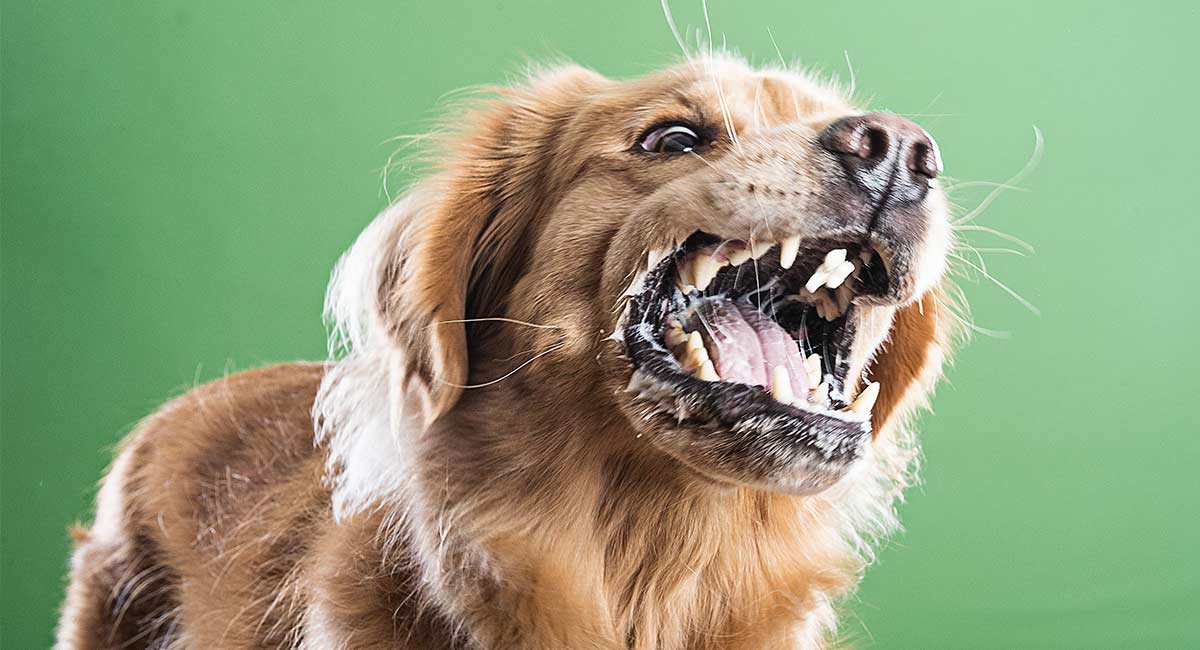Food aggression is a common problem in dogs, and it can be a major concern for pet owners. In this blog post, we will discuss the causes of food aggression, as well as how to fix it. We will also provide tips and expert advice on how to prevent food aggression from developing in the first place.

Image: thehappypuppysite.com
What is Food Aggression?
Food aggression is a type of resource guarding, which is a natural behavior in dogs. Resource guarding is the act of protecting a resource, such as food, toys, or territory, from other animals or people.
In the case of food aggression, a dog may growl, snap, or bite if someone approaches them while they are eating. Food aggression can be a serious problem, as it can lead to injuries to both people and other animals.
Causes of Food Aggression
There are many different causes of food aggression in dogs. Some of the most common causes include:
- A history of being punished for eating. If a dog has been punished for eating in the past, they may start to associate eating with pain or fear. This can lead to them becoming aggressive in order to protect their food.
- Competition for food. If a dog feels like they are competing for food, they may become aggressive in order to ensure that they get enough to eat.
- An underlying medical condition. Some medical conditions, such as thyroid problems or diabetes, can cause food aggression in dogs.
- Genetics. Some breeds of dogs are more prone to food aggression than others.
How to Fix Food Aggression
There are several things you can do to fix food aggression in your dog. The first step is to identify the cause of the aggression. Once you know the cause, you can start to develop a plan to address it.
Here are some tips for fixing food aggression in dogs:
- Avoid punishing your dog for eating. This will only make the problem worse.
- Feed your dog in a quiet, private place. This will help them to feel more secure and less competitive.
- Don’t let your dog interact with other animals or people while they are eating. This will help to reduce the risk of competition or conflict.
- If your dog shows any signs of food aggression, stop feeding them immediately and remove the food. This will help them to learn that food aggression is not acceptable.
- Consult with a veterinarian or a professional dog trainer. They can help you to develop a personalized plan to address your dog’s food aggression.

Image: www.dogvills.com
Preventing Food Aggression
The best way to fix food aggression is to prevent it from developing in the first place. Here are some tips for preventing food aggression in dogs:
- Socialize your dog early and often. This will help them to learn to interact with other animals and people in a positive way.
- Teach your dog basic obedience commands. This will help them to understand that you are the leader of the pack and that they must follow your commands.
- Avoid playing tug-of-war with your dog. This can teach them to compete for resources.
- Feed your dog in a consistent place and at a consistent time each day. This will help them to feel secure and less competitive.
FAQ on Food Aggression
Q: What are some of the signs of food aggression?
A: Some of the signs of food aggression include growling, snapping, and biting when someone approaches while they are eating.
Q: What are some of the causes of food aggression?
A: Some of the causes of food aggression include a history of being punished for eating, competition for food, an underlying medical condition, and genetics.
Q: How can I fix food aggression in my dog?
A: There are several things you can do to fix food aggression in your dog, including avoiding punishing them for eating, feeding them in a quiet, private place, and consulting with a veterinarian or a professional dog trainer.
Q: How can I prevent food aggression from developing in my dog?
A: Some of the ways you can prevent food aggression from developing in your dog include socializing them early and often, teaching them basic obedience commands, avoiding playing tug-of-war with them, and feeding them in a consistent place and at a consistent time each day.
How To Fix Food Aggression In Dogs
Conclusion
Food aggression in dogs is a serious problem, but it can be fixed with the right approach. By following the tips and advice in this blog post, you can help your dog to overcome their food aggression and live a happy, healthy life.
If you are concerned about food aggression in your dog, don’t hesitate to seek professional help. A veterinarian or a professional dog trainer can help you to develop a personalized plan to address your dog’s food aggression and prevent it from developing in the future.
Call to action: Are you struggling with food aggression in your dog? Don’t give up! There is help available. Contact a veterinarian or a professional dog trainer today to learn more about how you can fix food aggression in your dog.